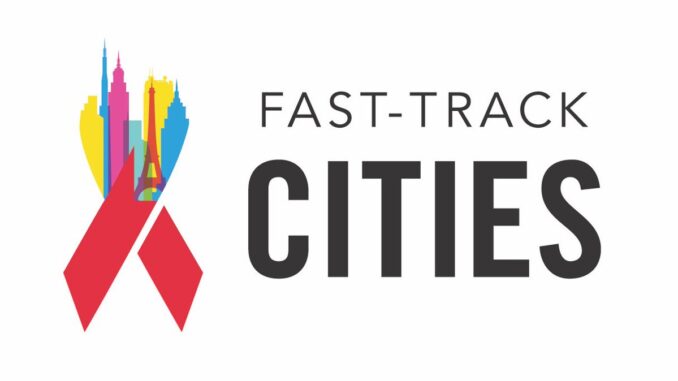
On Thursday, Toronto City Council adopted a motion from Mayor Olivia Chow and Toronto Board of Health Chair Councillor Chris Moise to officially endorse the City of Toronto’s participation in the UNAIDS Fast Track City Network, thereby gaining access to several benefits including: enhanced HIV monitoring and data analysis, faster implementation of prevention and treatment best practices and improved collaboration among governmental, public health and community partners.
As part of this decision, City Council formally requested Mayor Chow to sign the Paris Declaration and the Sevilla Declaration. The Paris Declaration focuses on prioritizing people in the HIV response. The Sevilla Declaration, introduced at the Fast-Track Cities 2022 conference, outlines 10 commitments for cities to boost community engagement and leadership in achieving initiative goals.
The UNAIDS Fast Track City network is a partnership that unites cities from around the world to collectively address the HIV/AIDS epidemic. It focuses on achieving the 95-95-95 targets by 2030 ensuring that 95 per cent of people living with HIV are aware of their health status, 95 per cent of those diagnosed are on antiretroviral treatment and 95 per cent of those on treatment have a suppressed viral load.
Toronto has seen a sustained increasing trend in reported HIV infections since 2016 with the exception being during the COVID-19 pandemic, where sexually transmitted infection (STI) testing decreased. Toronto Public Health’s 2023 Population Health Profile revealed a nearly 40 per cent decline in routine STI testing from 2019 to 2021, potentially contributing to ongoing undetected HIV transmission. More information is available on the City’s website: www.toronto.ca/legdocs/mmis/20
The City collaborates with more than 20 Toronto organizations to address HIV as part of the Toronto to Zero initiative. By joining the network, the City aims to meet UNAIDS targets, align with provincial HIV priorities and build on the Toronto to Zero initiative’s evidence-based strategy that covers prevention, testing, connecting to healthcare services, social determinants of health and fighting HIV stigma.
Toronto’s diverse and innovative population, coupled with its proactive involvement in combating HIV, positions the City uniquely to advance the HIV response.
Quote:
“HIV stigma perpetuates fear and discrimination, hindering progress in the fight against the virus. We must break the silence and replace judgment with compassion and understanding. Together, we can create a world where people living with HIV are treated with dignity, respect, and love. I am encouraged that Toronto will join the UNAIDS Fast Track City network.”
– Mayor Olivia Chow
“Toronto’s participation in the UNAIDS Fast Track City network is a significant step toward ending the AIDS epidemic by 2030. This global initiative, with more than 600 cities, is a game-changer in the fight against HIV/AIDS. Joining offers Toronto access to essential resources, technical assistance, best practices, and private sector support, emphasizing our commitment to public health and reducing HIV-related disparities. Toronto has much to gain and can catch up on the progress seen in other global cities that are part of the network.”
– Councillor Chris Moise (Toronto Centre), Chair of the Board of Health
“By joining this network, Toronto will have the opportunity to collaborate with other cities, experts and organizations globally. This will facilitate information sharing, joint initiatives, and innovative solutions that can accelerate progress towards ending the AIDS epidemic.”
– Medical Officer of Health, Dr. Eileen de Villa
SOURCE City of Toronto

Leave a Reply